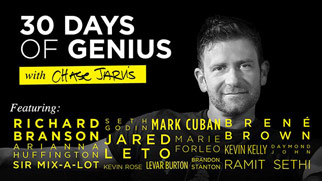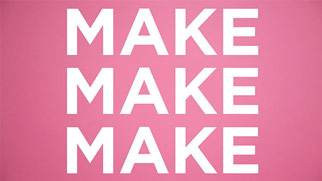I recently synthesized — stumbled upon, really — a great response to a question I’ve been asked at least 10,000 times. It’s a simple question on the surface, but I’ve always seen the answer to be so complex.
Until now.
Q: “Chase, how do I ‘make it’ as a photographer?”
Prior to today, I either tried to respond with some enthusiastic bullet points about passion, creativity, and hard work; or I lamented that I didn’t have a good answer; or replied with a)”I don’t know, but I’ll call you when I get there”; OR b)”Call me on my cell at 3am on a Saturday night when I’m 5,000 miles from home – I’ll be awake working and I’ll tell you then.”
Obviously all these answers lack something. From here on out, however, I’ll be excited to steer that broad question to this two-part answer:
1. Be Undeniably Good. Last year, in an interview with Charlie Rose, the famous comedian Steve Martin gave this advice to anyone trying to make it in any field:
Be undeniably good. When people ask me how do you make it in show business or whatever, what I always tell them and nobody ever takes note of it ‘cuz it’s not the answer they wanted to hear — what they want to hear is here’s how you get an agent, here’s how you write a script, here’s how you do this — but I always say, “Be so good they can’t ignore you.” If somebody’s thinking, “How can I be really good?”, people are going to come to you. It’s much easier doing it that way than going to cocktail parties.
Part 2 of this answer and a link to a great video after the jump. Hit ‘continue reading’ below.
—
It hit me like a ton of bricks. It’s simple, but profound and unarguably true. And in case someone responds to that suggestion with, “Ya, but how do I get to be so good that people can’t ignore what I’m doing?”, then I’ll drop part 2, complements of Malcolm Gladwell:
2. Dedicate at least 10,000 hours to whatever it is you’re looking to master. In his enlightening talk at the 2008 AIGA Business Design Conference, about innovation and misconceptions regarding what it takes to become a success, Gladwell discussed this concept from his new book Outliers: The Story of Success. “Genius and creativity don’t necessarily spring forth unbidden, they require time and support to experiment, try and even fail.” I found his talk really entertaining, and I’d imagine you might too.
What’s fun about photography, of course, is that anyone can pick up a camera these days and make great pictures, straight outta the gate. No brainer, really accessible, relatively little effort, nice pictures. I love that about photography – it’s why everyone has a camera these days. The technology is really wonderful.
But, if you want to “make it”, whatever that means, I think you need to start by being undeniably good. And if you can’t intuit how to be undeniably good, then start by dedicating 10,000 hours to it. That will get you where you want to be.
VERY IMPORTANT: Do NOT be discouraged by this answer. On the contrary, let this be your golden ticket, the keys to the kingdom. Let it be refreshing that the answer to your questions about mastering photography isn’t bound by money, gear, or even DNA. It’s right there for the taking.

























I do think there is truth to this and I think it bluntly states a truth that many wanna be pros need to hear. There’s a point between becoming a “good” amateur and before turning pro where thoughts of grandeur creep in. You start looking at pros and instead of being in awe, you think, um, I can do that. Which blinds you to a lot of hardwork they put in along the way. And certianly, a post like this will help.
I got a similar reality check slap upside the head, directy from Chase, when I asked at a Seattle meet up what it would take for someone with a fulltime profession, family and mortgage to make the jump to a fashion or commercial photographer. (For those of you who are as head-in-the-clouds as I was, here’s the secret… you can’t).
But, I’m a little surprised that every single commentor agrees so whole heartedly. Yes hard work is important (very very very important). But there are two things I think people don’t often want to acknowledge because it it conflicts with the “anyone can do anything with enough work” belief that is such a part of the american psyche. A) natural talent, and B) luck. You can’t be mozart with 100,000 hours practice. For every author Oprah endorses, there are 1000 better authors who are going to continue copy-editting because they didnt’ get that break. oops, and I now I’ve written waaaay too long a comment…
I to tend to get the same questions from time to time. For myself, I have found that it comes down to “roughly” three things. Hard work, constancy and making yourself known. We can do anything we want. I have a my motto “CREATE WHAT YOU WANT”. This is your script (ie ..life). You can make changes in the script anytime. Living in LA and NY and being surrounded by a lot talented and non-talented people, I find that people are who successful (whatever that maybe for you), will do just about anything to make it in whatever field they are in….for the most part. Sure there might be a little luck involved. And yet I understand the Steve Martins quote. It make great sense. But how many times have you seen an AD or a magazine spread and thought, I can do that so much better. That is part of my motivation. You can have all the talent in the world, and if the Art Buyers and Photo Editors do not know you, your not getting the gigs. So make yourself known, to let your talent separate from everyone else.
Here is a Guardian article on the book as well. I don’t think it’s an either or situation. According to the Gladwell article, it takes those 10K hours to be Undeniably Good. However, with photography as an overall craft and skill set, what all can we lump into those 10k hours? Critically looking at pictures, reading and study, dreaming of and conceiving pictures, or the actual time spent making pictures?
Can one make up for talent/vision/creative eye with pure tenacity and technical proficiency? How much innate talent must accompany the time in rate it takes to be Undeniably Good?
I’m of the mind to believe passion and time practice are only part of the equation. There is something else as well. I say this because I am confident I know people who have been dedicated to a skill/craft for a lifetime, and they’re still merely adequate (either by their own admission or by observation). What’s the other piece of the puzzle?
A sage-like drawing professor I had, Dale Leys (google him), joked about a formula for becoming a great artist…You draw everyday and place all of your drawings into a single pile until the stack of completed work finally becomes so high and so great that you could climb it, jump off of the stack, and die from the tremendous fall…then and only then could you be a master…he added that sculptors have the advantage here…so how many prints would it take?!
So a roundabout way of answering the question maybe be to answer these as well.
1: Do you consider yourself a success in your field? And if so, what it is to be a “success.”
2: What were your goals starting out in photography? Did you reach them?
Depending on the answer to the above
3: When did you realize that you met or exceeded these goals? And what did you think about it?
4: What are your current goals? What do you want to do with photography now? (X years after your start)
The answer to those and the tangents that may spawn from them might aid others.